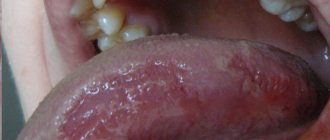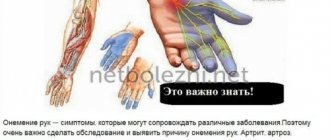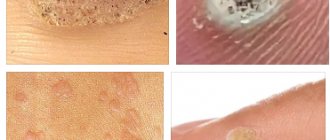What does bitterness in the mouth mean after eating or in the morning: causes and treatment
Bitterness in the mouth is a fairly widespread phenomenon, many people are familiar with it. This is especially true for those who suffer from pathologies associated with the gallbladder, liver, bile ducts, and organs of the digestive system. Why does this symptom occur?
The causes of altered taste are often spicy, fatty, spicy foods, and medications used over a certain period of time. A person suffering from congenital problems with the bile ducts also “puts up” with the taste of bitterness. Constant bitterness in the mouth (and not only after eating) indicates the presence of a serious disease that requires correct diagnosis and adequate treatment.
Bitterness in the mouth - what does it mean?
The main cause of a bitter taste in the mouth is the reflux of bile into the esophagus, which occurs when the liver, gallbladder and biliary tract are not functioning properly. Bile is a digestive fluid that is produced by liver cells and accumulates in the bladder. Here it is not only stored, but also “ripens” and acquires a full acid-salt composition. After “ripening,” the bile enters the duodenum, where it initiates the digestion process.
Bile secretion has a characteristic bitter taste. Healthy mature bile has a certain composition. In addition to acids and metal salts (sodium and potassium), the secretion contains proteins, phospholipids (fats for building cell membranes), cholesterol, chlorine and calcium ions. An unbalanced composition of bile leads to the precipitation of salts. This is how clots, flakes, sand and stones form in the gallbladder. They impede the outflow of secretions, forming stagnation in the bladder and ducts. In addition, the cause of stagnation is often a spasm that accompanies stress and nervous experiences (fear, hostility, anger, hatred).
Against the background of stagnation, the release of new bile continues, which tends to enter the bladder. The human liver secretes up to 1 liter of bile secretion per day. This creates pressure, which forcefully pushes the stagnant secretion, throwing it into the stomach and esophagus.
When and how often does the bitter taste occur?
From when bitterness appears in the mouth, we can guess what causes this symptom:
- During physical activity, if it is also accompanied by heaviness in the right side, it may be a sign of liver disease.
- In the morning - the reason most likely lies in problems with the liver and gall bladder.
- Only after eating too heavy, fatty foods, after overeating - diseases of the gallbladder, bile ducts, liver.
- Bitterness appears after any meal - diseases of the stomach, duodenum, gall bladder, and some liver pathologies.
- Short-term bitterness in the mouth - during a stressful situation or the use of medications that affect the liver and gastrointestinal tract.
- Constant bitterness in the mouth - a possible cause is cancer of the gastrointestinal tract, cholelithiasis, cholecystitis, endocrine or mental illness.
Signs and diagnosis
To determine why the patient feels sick and has a bitter taste in the mouth, the doctor must analyze the accompanying manifestations. Their list includes:
Causes of rotten breath
- bloating and stomach pain;
- nausea;
- the appearance of bitterness in the mouth after vomiting;
- problems with stool (diarrhea, constipation);
- digestive disorders (discomfort in such cases occurs after eating);
- dizziness;
- increased gas formation;
- putrid odor from the mouth.
Dryness and bitterness in the mouth + attacks of nausea are “identifying signs” of gastritis (inflammation of the gastric mucosa). If belching is also added to these, we are talking about cholecystitis. The latter is accompanied by periodic spontaneous pain in the epigastrium and right hypochondrium. It is noteworthy that exacerbation of cholecystitis can be triggered by both increased stress or physical activity, and banal overeating.
Important! Any dyspeptic manifestations (nausea, vomiting, diarrhea, bitter taste on the oral mucosa, abdominal pain) in most clinical cases are aggravated by malfunctions of the hepatobiliary system (liver, biliary tract, gallbladder) and other gastrointestinal organs.
Thus, patients with such symptoms begin to have difficulty with “heavy” meals, lose their appetite, and may lose weight. Liver disorders can be “recognized” by the characteristic jaundice of the skin and mucous membranes - in combination with dyspepsia, jaundice indicates hepatitis, cirrhosis, hepatosis and other serious pathologies. Bitterness and nausea after eating are a sign of the following digestive disorders: gastroduodenitis, problems with intestinal motility (spasmodic nature), colitis, enterocolitis.
Diagnosis for persistent bitterness and nausea includes:
- examination, analysis of patient complaints, history taking;
- palpation of the epigastrium, right hypochondrium, gallbladder;
- fibrogastroduodenoendoscopy (instrumental examination of the esophagus, duodenum and stomach);
- general, clinical analysis of blood, urine;
- ultrasound of the abdominal organs;
- if hepatitis is suspected, liver tests;
- pH-metry (allows you to determine the level of stomach acidity);
- for diseases of the oral cavity - a dental examination.
Appears after eating cedar
After eating pine nuts, even a completely healthy person may experience bitterness in the mouth. Usually this phenomenon is mistakenly attributed to the choleretic properties of the product, but such a reaction cannot occur with high-quality pine nuts.
Meanwhile, bitterness in the mouth appears immediately after eating and lasts for several days; sometimes other symptoms of intoxication may appear - nausea and pain in the liver area. All this clearly indicates that the pine nuts were artificially grown and imported from China. Many suppliers pass off Chinese nuts as domestic products, since they are cheaper to purchase. But there are many reasons why it is better to refuse such a food product.
Diet
The diet should include soft, well-chopped food. Gentle cooking methods - steam, bake, boil, stew. Include puree soups and cream soup in your diet. Bread can be consumed dried, yesterday's bread made from first and second grade flour. Meat – chicken, turkey, lean parts of beef, lean fish. Eggs should be in the form of omelettes, steamed in the oven. Food should be warm, not cold or hot. If there is a symptom of bitterness in the mouth, it is necessary to exclude sausages, smoked foods, fatty, fried, canned, and pickled foods from the diet. It is completely necessary to exclude alcohol, spicy foods, coffee, chocolate, carbonated drinks, pork, and some legumes.
The main causes of bitterness
What does bitterness in the mouth indicate? There are actually a lot of reasons why a person begins to feel this. In this way, the body may try to “indicate” diseases of the digestive system or a gallbladder disease. This sensation may also be a sign of poor nutrition or taking medications of various spectrums for too long (mainly those used to treat the liver).
The main causes are diseases of the gastrointestinal tract (GIT):
- Diseases of the duodenum. Bile from the duodenum, entering the stomach, causes corrosion of its walls. Bile contains acids that cause a feeling of bitterness.
- Gastritis (see symptoms and treatment of gastritis). With this disease, the composition and amount of gastric juice produced by the body changes, the process is also accompanied by poor digestibility of proteins, fats, carbohydrates and other vitamins, and the removal of toxins worsens. Together, this causes heartburn, bad breath, constant belching and, accordingly, an unpleasant taste in the mouth.
- Gastric dyspepsia. The cause of the bitter taste may be difficult digestion caused by disruptions in the functioning of the stomach.
- Gastroesophageal reflux disease. This disease provokes surges of concentrated gastric juice to the very top of the esophagus, from where it enters the oral cavity. It can develop due to the abuse of spicy and fatty foods, as well as constant overeating (even healthy food rich in vitamins and minerals - an excess of it is also harmful).
- Disturbances in motor activity of the stomach. With reduced motility of the biliary tract, bile stagnates in them; with increased motility, there are sharp releases of bile into the duodenum, then into the stomach, esophagus and oral cavity, causing bitterness, burning and heartburn.
- Dysbacteriosis. Under normal conditions, a large number of beneficial bacteria live and function in the human intestine, capable of synthesizing vitamins, creating microflora and generally increasing the body’s immune strength. If the intestinal microflora is normal, then no problems are observed, but if an imbalance occurs, then dysbacteriosis appears, causing bitterness in the mouth.
- Giardiasis. A disease caused by the penetration of Giardia (intestinal parasites) into the body, causing disorders in the functioning of the small intestine. Nausea, bitterness occurs, and sleep is disturbed.
Dental diseases:
- Inflammation of the gums, mucous membrane of the tongue. This occurs if a person carelessly takes care of their teeth, and bad breath adds to the bitterness.
- Increased sensitivity to external interventions - implantation of dental crowns, dentures or fillings. The bitter taste is often caused by raw materials for dentures, fillings or gel for fixing an artificial jaw.
Other reasons include:
- If there is liver dysfunction (any disease), then increasing inflammatory processes negatively affect the production of bile and its transportation through the relevant systems of the body.
- Nervous system disorders, in which the peripheral nerves responsible for the taste buds and sense of smell become inflamed, also alter the perception of the taste of food and make it bitter.
- At moments when the level of glucose in the blood rises, vision begins to deteriorate, a feeling of weakness and heat appears in the palms and soles, along with this, a bitter taste becomes very noticeable in the mouth.
- General intoxication of the body, which is observed when it is damaged by heavy metals such as mercury, lead, copper and others.
- Disturbances in the functioning of the endocrine system lead to the fact that the thyroid gland, together with the adrenal glands, begins to produce huge amounts of adrenaline. As a result of this, the bile ducts narrow, which provokes the release of bile towards the esophagus and the appearance of bitterness.
- Lack of zinc - an important trace element that is necessary for the normal functioning of cells and taste buds in particular.
- Smoking for many years. Long-term exposure to tobacco and its derivatives has a detrimental effect on the taste buds, as a result of which the smoker begins to feel an unpleasant bitterness.
Treatment of cholestasis
The first measure when cholestasis is detected or suspected is nutritional correction.
A special feature of this diet is the replacement of animal fats with vegetable fats. It is recommended to eat more vegetables and fruits, choose lean meats and types of dairy products. Cereal-based porridges are also useful. It is necessary to limit fried, smoked and spicy foods. You should completely avoid alcohol, strong coffee and tea. For the treatment of cholestasis, medications of different groups can be prescribed:
- hepatoprotectors;
- antibiotics;
- cytostatics;
- ursodeoxycholic acid preparations.
For signs of hypovitaminosis, multivitamin complexes are also recommended.
In the fight against skin itching, the first-line drugs are bile acid derivatives, which bind bile acids from bile in the lumen and prevent their transport into the bloodstream. The effectiveness of CNS opiate receptor blockers has been proven. During the rehabilitation period, non-drug methods are used to increase the body's defenses - physiotherapy, massage, physical therapy. Treatment of pregnant women is complicated by risks to the fetus when using medications, therefore, to reduce symptoms, they resort first of all to simple and safe means - oatmeal masks, chamomile decoction, and the use of baby cream.
Cold water and sleeping in a cool room relieve itchy skin. However, if it is strengthened, the doctor may prescribe bile acid preparations approved for use in pregnant women (in particular, ursodeoxycholic acid). These drugs are determined by the American Food and Drug Administration (FDA) based on clinical studies. Drugs for which sufficient data have been accumulated on their use in pregnant women are assigned by this organization to the appropriate group (category of action on the fetus).
For successful treatment of cholestasis in children, it is important to promptly establish the cause of this syndrome. Often the pathology in this group of patients cannot be cured with medications alone; then surgery is performed.
In adults, surgical intervention is also often required to relieve the causes of cholestasis. There are several surgical treatment options available:
- plastic surgery of the biliary tract and anastomosis;
- external drainage of the bile ducts;
- removal of stones from the cavity of the gallbladder or the organ itself.
Causes of bitterness in the mouth while eating
Sometimes you feel a bitter taste in your mouth while eating. When this phenomenon is one-time in nature, the cause may be the type and method of cooking.
But what to do if the bitterness in the mouth becomes chronic? First, you should consult a doctor. He will be able to determine what disease such a symptom relates to and then prescribe treatment. The main causes of bitterness in the mouth while eating are:
- Cholecystitis is an inflammatory process in the gallbladder, which is accompanied by painful sensations in the side, dry mucous membranes, and high body temperature.
- Dysfunction of internal organs. Diseases of the digestive organs, liver, kidneys, gall bladder.
- Poor nutrition. It is not recommended to eat fatty, fried, spicy, salty foods, soda, and fast food. As a result of their consumption, a feeling of bitterness may occur.
- Acid reflux, vomiting aftertaste. The cause of bitterness is gastric juice, which from the stomach begins to rise through the esophagus to the oral cavity.
- Disturbance of taste buds. The receptors that are responsible for the perception and recognition of taste stop working. All products that a person consumes do not differ in taste for him. This occurs due to excess amounts of phenylthiocabamide in the body.
- Hormonal changes in the body during pregnancy.
- Dental diseases of the teeth, gums, the body’s reaction to a filling or crown.
- Violation of acid-base balance. Accompanied by lethargy, muscle fatigue, joint pain.
If such a symptom appears after eating, it is recommended to adhere to the rules of a healthy diet. Avoid eating fatty, fried, salty, bitter, sour foods, soda, sweets, and baked goods. It is advisable not to convey that food should be easily processed and absorbed by the body.
When to see a doctor?
If the appearance of bitterness in the mouth is not associated with drinking coffee, burnt or poor-quality food, if the bitter taste appears regularly or persists for a long time, if it is accompanied by other symptoms, you should consult a doctor. This could be a dentist, if the bitterness in the mouth is associated with diseases of the teeth and gums, a gastroenterologist, if the cause may be diseases of the digestive organs or biliary tract, a hepatologist, if there are symptoms of liver disease.
Important! In some cases, you need to urgently seek medical help. If bitterness in the mouth is associated with accidental ingestion of poison, if it appears along with other severe symptoms (difficulty breathing, swelling of the tongue, lips, difficulty swallowing, paralysis, changes in consciousness), you should immediately call emergency medical help.
Food poisoning and bitter saliva
Foodborne toxic infection is very often accompanied by a taste of bile due to general toxicosis of the body and malfunctions of the digestive system. This includes vomiting bile and bile reflux. Often, after poisoning, a person temporarily lacks appetite. Food does not enter the stomach, and bile, despite this, is produced by the liver around the clock. It stagnates and some of it is thrown into the stomach and esophagus.
It takes time to normalize the functioning of the digestive tract after the symptoms of poisoning disappear. Then the unpleasant taste sensations will pass.
Treatment and elimination
Based on the diagnosis, the doctor prescribes treatment.
Important! If the problem is discovered by the dentist, he will treat carious cavities, install fillings, remove teeth that cannot be restored, detect and eliminate pockets of inflammation, and perform hygienic professional teeth cleaning.
In some cases, after treatment you will need to use pharmaceutical preparations - rinsing solutions and various gels (for example, for stomatitis).
For inflammation of the ear, nose and throat, complex treatment is prescribed, including drug therapy, physiotherapy, and traditional methods.
Depending on the diagnosis and the severity of the disease, the doctor may prescribe :
- antiviral or antibacterial local drugs (sprays and nasal drops, ear drops, solutions for treating the throat);
- antibiotics in tablet form if necessary;
- antipyretics (if the temperature is elevated);
- physiotherapy (anemization, application, ultraviolet irradiation, laser treatment);
- traditional methods (nasal rinsing, inhalation, ear blowing);
- use of sprays and lozenges for the throat (Gexoral, Yox, Grammidin);
- massages, herbal tinctures.
Stay up to date! For endocrine disorders, hormonal drugs are prescribed.
For diseases of the gastrointestinal tract a strict diet is recommended , as well as drug therapy (Smecta, Enterosgel, Polyphepan).
In the chronic form of diseases of the digestive tract, constant adherence to a therapeutic diet is required.
It is necessary to exclude fatty, fried, spicy, salty, smoked, alcohol, soda, processed foods, spices and fast food.
Detected pathologies of the liver and gall bladder are treated with the following drugs:
- Essentiale Forte to normalize liver function;
- Karsil to remove toxins and reduce the load on the liver;
- Allochol is a herbal preparation to improve the functioning of the digestive system and gallbladder;
- Ursosan to improve the flow of bile and dissolve gallstones, helps with cirrhosis, cholestasis, hepatitis;
- Choleretic drug Gepabene .
It is worth noting! If pathologies of internal organs are detected, the patient is advised to give up bad habits (smoking, alcohol).
It is worth reviewing your taste habits and removing coffee from the menu, eating at least 5 times a day to reduce the load on the digestive system.
A medication aimed directly at eliminating the bitter taste is prescribed only as part of complex therapy to combat the underlying disease.
These are sodium thiosulfate capsules.
During treatment, it is very important to maintain a drinking regime , drinking at least 2-2.5 liters of water per day.
Bitterness in the mouth in the morning
It is not possible to determine the cause of bitterness in the mouth by one symptom, because the causes of this symptom can be various dysfunctions of internal organs:
- Overeating before bed.
- Reaction of the gastrointestinal tract to foods: salty, fatty, bitter, fried foods, spices, nuts.
- Disruption of the gallbladder. There is a failure in the production and excretion of bile as a result of the manifestation of diseases such as cholecystitis, cholelithiasis, pancreatitis, congestion, and neoplasms.
- The material was chosen incorrectly or the prosthesis, crown, or filling was made. The result is bad breath.
- Diseases and dysfunctions of the digestive organs.
- Intestinal dysbiosis, which occurs after taking antibiotics.
- Diseases in the oral cavity, teeth, gums, white coating on the tongue.
- Bad habits: smoking, alcohol.
- Hormonal disorders.
- Liver dysfunction: jaundice, cirrhosis, hepatitis.
- Unstable psycho-emotional state: stress, neurosis, depression.
- Kidney disorders.
- Pathologies of ENT organs.
- Intoxication of the body with metals: lead, mercury, copper.
- Diabetes mellitus and other endocrine dysfunctions.
Why is there a problem?
Temporary nausea and bitterness in the mouth, as a rule, are nothing more than the result of overeating the day before. So, these symptoms and weakness in the morning can be provoked by alcohol, peppery, fatty, fried foods eaten for dinner, marinades, smoked foods and other “aggressive” foods.
Nausea and bitterness in the mouth may have more serious (pathological) causes. The first “suspect” is biliary dyskinesia - muscle spasm leading to disruption of bile outflow. Bile stagnates, from time to time it is thrown into the esophagus along with particles of undigested food, causing discomfort in the oral cavity.
Other causes of bitterness in the mouth and nausea:
- infectious diseases of the upper respiratory tract;
- ulcers of the stomach, duodenum;
- inflammatory processes in the pelvic organs;
- bitterness in the mouth is a classic sign of almost all liver pathologies;
- long-term use of various groups of medications (primarily antibiotics);
- acid reflux (occurs also during pregnancy due to weakening of the gastric sphincter due to increased levels of prolactin in the blood).
If the patient feels sick, has a bitter taste in the mouth and has diarrhea, this set of symptoms may indicate poisoning (general intoxication) of the body with salts of heavy metals - cadmium, copper, lead, mercury. Your health may be aggravated by severe headaches, bloating, dry mouth, dizziness, and increased body temperature.
Hormonal changes in the female body during pregnancy are a common cause of the appearance of a bitter taste on the oral mucosa
Liver diseases that most often provoke nausea and bitterness in the mouth:
- hepatosis (dystrophic changes in hepatocytes - liver cells - under the influence of toxins that lead to dysfunction of this organ);
- hepatitis (liver inflammation of viral origin);
- cirrhosis (irreversible destruction of organ cells due to the replacement of parenchymal tissue with fibrous tissue).
Belching, diarrhea, bitter taste in the mouth, nausea and weakness are indicators of helminthiasis (parasitic activity of round and flatworms in certain internal organs). Nausea, heartburn, bitterness in the mouth in the morning are “sure signs” of pregnancy in women. The appearance of discomfort is associated with a weakening of the gastric sphincter and, as a result, the release of acid into the esophagus, as well as (at a later date) the pressure of the enlarged uterus on the stomach.
The constant presence of a bitter taste in the mouth can be a symptom of a number of dental diseases:
- stomatitis (viral, bacterial damage to the mucous membrane);
- glossitis (inflammation of the tongue);
- gingivitis (inflammatory process affecting the gums);
- The cause of discomfort may also be improperly fitted dentures or an allergic reaction to their metal elements.
Poor nutrition (unbalanced diet, an abundance of fatty and fried foods, alcohol abuse) is a factor that causes the development of diseases of the digestive tract and the appearance of dyspepsia (nausea, bitterness in the mouth, diarrhea, abdominal pain)
A bitter taste in the mouth and nausea can also be due to a violation of cerebral circulation (then the problem has a neurological basis), vascular spasm is certainly accompanied by the appearance of these symptoms, as well as general weakness, dizziness, fainting conditions, etc.
Constant feeling of bitterness
When a bitter taste in the mouth appears regularly, this indicates serious disorders and diseases. If you experience persistent bitterness, you should urgently visit a doctor who will help determine the diagnosis of the condition. A regularly occurring bitter sensation in the oral cavity may be a sign of cholecystitis, cholelithiasis, oncological diseases of the gastrointestinal tract, endocrine or mental.
Useful video
From this video you will learn about the causes of bitterness in the mouth and methods of getting rid of this unpleasant symptom:
Bitterness in the mouth is a symptom that may indicate either an incorrect diet or severe or not very serious diseases of the internal organs .
Unpleasant taste is the subject of study by many specialists , including dentists, endocrinologists, otolaryngologists, and gastroenterologists.
The diagnosis sometimes takes several weeks or even months, so if you have this problem you need to go to the hospital right away.
Bitterness in the mouth during pregnancy
During pregnancy, a woman's body undergoes such dramatic changes, both hormonal and physiological, that the appearance of any unusual taste or other strange symptom should be perceived as normal. In the 1st trimester, an increase in progesterone has a relaxing effect on the valve separating the esophagus and stomach, so acid and bile can enter the esophagus, causing a bitter taste, nausea, and vomiting.
In the later stages, heartburn and a bitter taste cause a woman very strong discomfort, this is explained by the growth of the fetus and its pressure on the gallbladder and stomach; this symptom haunts the pregnant woman until childbirth. To reduce the frequency and intensity of this unpleasant manifestation, a woman should adhere to a certain diet - exclude fried and fatty foods, coffee, sour and spicy foods, eat little and often, avoid drinking liquids during meals, and drink only in between meals.
Diagnostics
It is important to know that independently determining the cause and choosing treatment methods is strictly prohibited, since incorrectly selected drugs can only harm the body. The fight against this manifestation should begin and continue only after a specialist makes an accurate diagnosis.
Methods for diagnosing this symptom:
- Blood tests: general and biochemical - help to identify the presence and degree of the inflammatory process, evaluate liver function, parameters of fat and pigment metabolism.
- Analysis of stool for the bacteriological composition of intestinal flora - detects dysbiosis.
- Fecal analysis (coprogram) - reveals disturbances in the digestion of food, provides information about the possible presence of parasites in the intestines.
- X-ray of the abdominal organs - prescribed to identify stones in the ducts and possible calcification of the pancreas.
- Ultrasound of the hepatobiliary system (ultrasound) is an extremely informative method for diagnosing pathologies of the liver, gallbladder and ducts. With its help, you can determine the parameters and location of the gallbladder, bile stagnation, the presence of stones, neoplasms, and polyps.
- Computed tomography of the abdominal organs - with its help you can examine any area in the peritoneum layer by layer and assess the extent of organs affected by pathological changes.
- Endoscopic examination of the gastrointestinal tract (fibroesophagogastroduodenoscopy, fibrocolonoscopy) is carried out to check for the presence of concomitant diseases and for differential diagnosis.
- Immunogram and analysis for tumor markers - given if a malignant process is suspected.
How to remove bitterness in the mouth, the cause of which has not been established?
If the cause of bitterness in the mouth is not determined, it is recommended:
- Frequent meals in small portions are effective for women in late pregnancy, in whom bitterness is caused by the pressure of the fetus on the digestive organs;
- Smoking cessation or restrictions – if bitterness is caused by disorders of the taste buds due to constant exposure to tobacco smoke;
- Taking probiotic medications to normalize the microflora and cleanse them from parasites is an effective method if the bitterness is caused by a parasitic invasion, as is the case with giardiasis;
- Detoxification of the body and cleansing of the intestines with the help of sorbents - helps with bitterness caused by food poisoning;
- A diet that excludes fatty and heavy foods, as well as spices, spicy, smoked foods - helps if a bitter taste in the mouth appears due to indigestion;
- Normalizing sleep and rest patterns, eliminating stress factors, playing sports and walking in the fresh air - if bitterness accompanies neurological pathologies and mental disorders.
Bitterness in the mouth cannot be treated at home with the help of medications, since this is not a disease, but just one of the symptoms of body disorders, each of which requires an individual approach to treatment.
Treatment
Treatment is prescribed based on diagnostic results, taking into account the causes of bitterness in the mouth.
Conservative therapy
Photo: freepik.com
A doctor may prescribe the following medications:
- Choleretics and cholekinetics. These are choleretic drugs that are prescribed for cholangitis and cholecystitis.
- Enzymes that stimulate digestion. They can be used not only for diseases of the digestive organs, but also for liver damage (in combination with hepatoprotectors).
- Antispasmodics. They are prescribed if bitterness in the mouth appears along with abdominal pain and is associated with gastritis or other diseases of the digestive system. Antispasmodic drugs relieve pain and relax the smooth muscles of the stomach.
If the appearance of bitterness is associated with viral hepatitis, the doctor will prescribe complex therapy for the underlying disease. In case of parasitic infection, anthelmintic drugs are prescribed. Additionally, it is recommended to follow a diet, frequent, small meals and control the drinking regime.
Surgery
Surgical treatment is carried out for gallstone disease to remove and remove stones - calculi. If the gallstones are small, the ESWL (extracorporeal shock wave lithotripsy) technique is used, crushing the stones with a shock wave. In more severe cases, open or laparoscopic cholecystectomy is prescribed. It is carried out if neither diet nor ultrasound methods improve the condition. A cholecystectomy involves removing the gallbladder.
Stones extracted from the gallbladder. Photo: Alena1919 / Depositphotos






